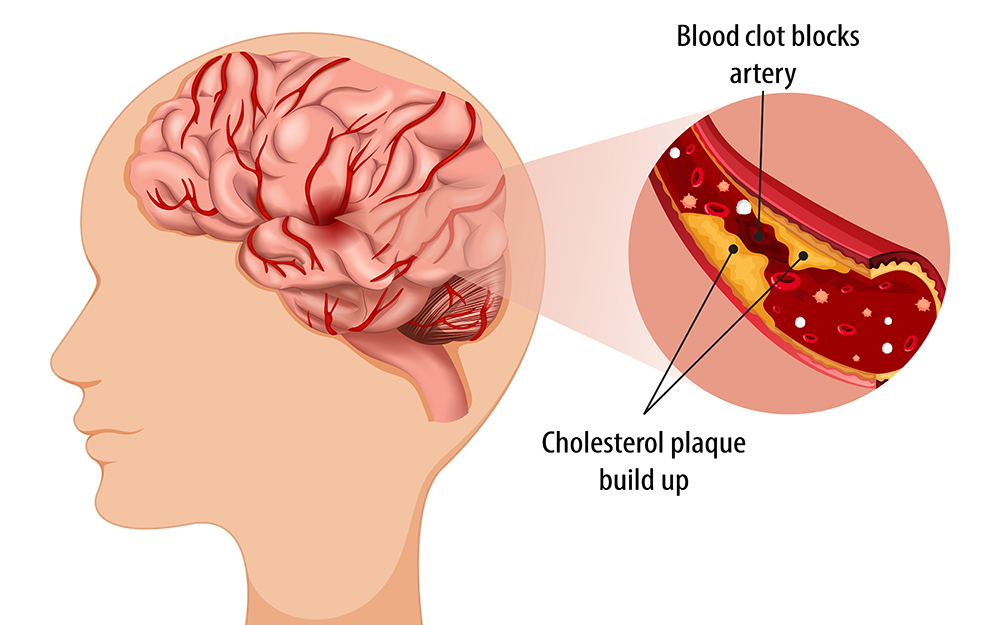I am going to start out by telling my readers that I had not one, but two strokes and I will admit, life is not like it used to be. Here’s the picture, I wrote articles for clients around the world and I was very fast at writing. I helped many people with their websites. I would get an article order of five articles and would have that finished within a day (sometimes within the hour). But now, it is not the same, it will take me a large amount of time to write an article, and that does frustrate me but that will be okay.
Life can indeed become more “normal” after a stroke, but it’s important to understand that the definition of “normal” may change. Stroke recovery is a highly individualized process, and the extent of recovery can vary greatly depending on several factors, including the severity of the stroke, the area of the brain affected, and the age and overall health of the individual.
Here are some key points to consider about life after a stroke:
1. Continued Improvement: Many stroke survivors experience significant improvements in physical and cognitive function with time and rehabilitation. The greatest progress is often seen in the first few months, but recovery can continue for years. Take it from me, you will feel as if it is never going to get better, nothing is ever going to improve but it does improve. For me, I feel that I improve every day. The thoughts I had yesterday are not the same as today. That is just something my friends who talk to me will learn about.
2. Adjustment: Life after a stroke may involve adjustments to daily routines and activities. Some tasks may become more challenging, while others may need to be modified. Assistive devices and adaptive strategies can help with these adjustments. Like, walking, for example, I have a pull to the right problem when I walk. It’s just that my car needs to be realigned, haha. I can imagine, stranger may think “wow, that girl is drunk,” but no, it’s just how I am. And, just so you know, I have never drank alcohol in my life and I am fine with that.
3. New Normal: For some individuals, the effects of a stroke may lead to a “new normal.” This means finding ways to adapt to any lasting disabilities, focusing on strengths, and learning new skills to maintain a fulfilling life. Like my walking and how I have an alignment problem (we just talked about that), that is my new normal. Am I okay with the new normal? Well, it’s better than being six feet under, so it is something I will accept.
4. Emotional and Psychological Impact: Stroke survivors and their loved ones may experience a range of emotions, including frustration, sadness, and anxiety. Seeking support through therapy, support groups, or counseling can be helpful in managing these emotions. I have anxiety, no about that but I have already been through so much and feel that if I got through that, I can get through whatever frustration is in front of me.
5. Support System: Having a strong support system of family, friends, and healthcare professionals can make a significant difference in a stroke survivor’s life. Emotional and practical support is crucial during recovery. Me, for example, I have a lot of support from my husband and my daughter. My husband stayed with me for three months in the hospital (thank you for that, Steven, I can never repay you).
6. Long-Term Care: Some individuals may require ongoing medical care and assistance with daily activities. Long-term care plans should be discussed with healthcare providers and caregivers. Steven (the husband) is my caregiver and I am thankful for having him because come on, without his help, my pants would be on backwards and the shirt would be upside down (I wish I was joking, but I’m not).
7. Preventive Measures: Reducing the risk of another stroke is essential. This involves managing underlying conditions (e.g., high blood pressure, diabetes), taking prescribed medications, and making lifestyle changes (e.g., quitting smoking, maintaining a healthy diet). I don’t know what caused me to have strokes, but I have never had alcohol, smoked, or did any form of street drug but it is always a good idea to take preventive measures.
8. Positive Outlook: Maintaining a positive attitude, setting realistic goals, and staying motivated are important for ongoing progress in stroke recovery. Do I have a positive attitude? No, not all the time but it is something I am working on. It is hard to learn how to think positive in a world that is fille with so much negativity and that is why I go to my corner a lot (my corner is where all negative energy is eliminated. It is a world where only positive exists).
9. Continued Rehabilitation: Many stroke survivors continue to benefit from ongoing rehabilitation, including physical therapy, occupational therapy, and speech therapy, to improve and maintain their abilities.
10. Advancements in Treatment: Medical advancements and research in stroke treatment and rehabilitation techniques continue to evolve, offering hope for improved outcomes in the future.
Medical advancements and research in stroke treatment and rehabilitation techniques continue to evolve, offering hope for improved outcomes in the future.
While life may be different after a stroke, many stroke survivors go on to lead fulfilling and meaningful lives. It’s important to focus on your strengths, adapt to changes, and seek support as needed. The path to recovery can be challenging, but with determination and support, it is possible to find a new sense of normalcy and quality of life after a stroke.














+ There are no comments
Add yours